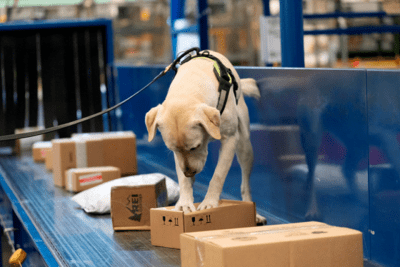Australia’s national audit office has handed down a damning assessment of the Federal Government’s processes for responding to non-compliance of biosecruity requirements.
 The Australian National Audit Office recently audited the Department of Agriculture, Water and the Environment’s effectiveness in responding to non-compliance with plant and animal biosecurity requirements.
The Australian National Audit Office recently audited the Department of Agriculture, Water and the Environment’s effectiveness in responding to non-compliance with plant and animal biosecurity requirements.
It found the department’s arrangements and compliance framework is “largely inappropriate”, while arrangements to detect non-compliance were “partially inappropriate”.
Findings included that intelligence is not gathered and managed effectively, there is no established framework for assessing and managing risk across the biosecurity system, and the approach to managing biosecurity compliance is not supported by appropriate plans.
In some cases travellers with declared or inspected risk material are being incorrectly released.
The ANAO has made eight recommendations including that the Department implement a strategy and procedural guidance of its use of intelligence in regulating biosecurity by 1 July 2022, and implement a framework to assess and manage risk across the entire biosecurity system by the same date.
To see the full report and recommendations click here.
In response the department says it has agreed to all eight recommendations in the ANAO report.
Head of Biosecurity at the Department of Agriculture, Water and the Environment, Andrew Tongue, said the report identified timely recommendations to improve the department’s arrangements to respond to non-compliance with biosecurity.
“Although Australia’s current biosecurity system has served our country well, the department recognises that the system must continue to evolve to enable appropriate management of known and emerging threats both domestically and globally,” Mr Tongue said.
“Prior to the audit, the department had already commenced a body of work to enhance its compliance arrangements and regulatory practice.
“In particular the department is undertaking a range of changes and improvements through the development of its Regulatory Practice Statement and Regulatory Practice Framework.
“We are committed to protecting Australia’s biosecurity status and our agricultural industries by minimising the entry of new pests, diseases and weeds and regularly making improvements.
“The Australian Government’s significant investment in its Biosecurity Package in the 2021-22 Budget and the recently released Commonwealth Biosecurity 2030 will further position the department to address the audit findings.
“The Budget investment will boost our frontline people and resources, strengthen our partnerships with industry and the community, and modernise our ICT systems, technology and data analytics to better target risk and speed up clearance times.
“Commonwealth Biosecurity 2030 will help the government build a stronger, smarter biosecurity system.
“Through addressing growing biosecurity risks and making sure we have the best controls, tools, processes and networks in place into the future we can continue to safeguard Australia’s agricultural industries, environment and exports.”
Click here to see the Commonwealth Biosecurity 2030 report.



The inland rail hub is all about export freight from what I have been able to ascertain, and a significant amount of it based around coal (Which will decrease as we move to cleaner energy). I was discussing it with a client in Sydney who imports 10 FCL’s a week in peak season and 4 a month in non peak. He would decentralise his Sydney warehouse to the new Special Activation Zone in Wagga but AQIS says he has to clear customs in Sydney de-van and repack a truck and send to Wagga. The costs outweighs the benefit. I fully understand the biosecurity for dept of Ag but there are certain goods (plastics, retail clothes, promotional items etc) that pose little to no bio security threat. If we can have an AQIS bubble in Wagga and clear inbound customs here it will be a game changer for many importing companies, allow decentralisation, remove significant truck traffic from long haul road use, increase rail use efficiency, move containers to the regions they are needed full instead of being transported empty, just to name a few. How do we push this further?